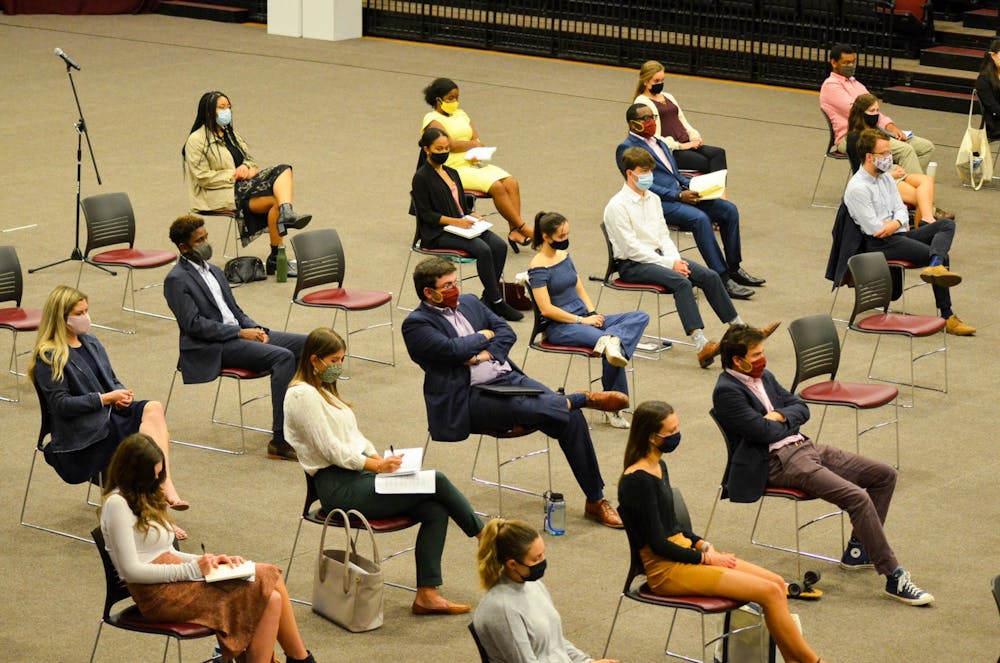The Student Government Association hosted Provost and Vice President for Academic Affairs Aswani Volety during their weekly business meeting to speak on new updates in academics for the 2020-21 school year in light of the COVID-19 pandemic.
Delegates asked specific questions to the provost, and discussed schedule changes and student safety when returning home after the semester.
Volety described some of the lessons that administration has learned from the fall, and how those lessons played a role in the schedule changes made to the university’s academic calendar, including changes to breaks for students in the winter and spring.
“We were a little careful in terms of how much break [students] got,” Volety said, citing concerns of interactions and possible new infections of students returning from Spring Break travel. “You have nearly 7,200 students going all over the country and then coming back, and there is no way to manage and mitigate the risk.”
He also spoke about the smaller breaks scheduled into the calendar, and how faculty are encouraged to go easy on students with work and exams during those times.
“Spending your break on homework and assignments is not a break,” Volety said. “[Faculty] are very cognizant of these things, and I think you'll definitely see some changes in terms of how you get breaks and what you will be doing, or more precisely what you will not be doing on breaks.”
As the end of fall semester approaches, Volety is hopeful about the acquisition of rapid coronavirus tests not just for pre-departure before Thanksgiving, but for students returning in January.
“I think we’ll get it by a December-January timeframe, and we're hoping to get 5,000 of them maybe by next week,” Volety said. “Hopefully, whoever wants to get a test in the next week or two before you go home for Thanksgiving will be able to get it, and it's going to be a very quick result.”
Representatives later debated and voted to not pass new legislation that sought to approve $6,000 of SGA reserve funding to install speed bumps and speed limit signs on Phoenix Drive, the road that runs past Global Neighborhood and the athletic fields.
Some delegates, like Class of 2023 Vice President Trevor Molin questioned the role SGA had in spending their money on the proposed project, and what future precedent it would set for the allocation of reserve funds.
“I feel like the reserve fund isn't meant for us to be going around campus and doing potentially other people's jobs,” Molin said. “I think it’s a good thing, but I don’t know if it is our job to do it.”
Class of 2021 Vice President Nick Urbanski questioned the amount of research that went into the necessity of the speed bumps, and said while it was a good idea, there was not enough evidence to justify approving the funding for it.
“These are student fees that we're talking about,” Urbanski said, speaking about the reserve fund. “I just don't think it's a good use of them to spend $6,000 on two speed bumps, for a piece of legislation that has not had enough research conducted on it.”
Senators attempted to redraft the legislation, changing the allocated funds to $400 dollars just for speed limit signs and removing speed bumps from the proposition, but the bill ultimately failed to move through after senators voted, receiving 13 yes votes, 6 no votes, and 25 abstaining.


